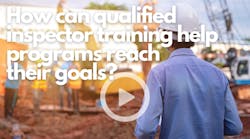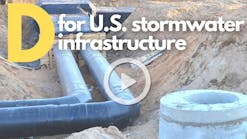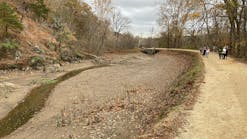It is natural to be nervous before your first day on the job (after the initial post-job offer celebration of course). How are you going to assimilate into the workplace’s culture? Are there job expectations you may have trouble fulfilling? How are you going to take in all the new information and terminology in a timely manner? Can you learn on-the-fly? There are all sensible, common worries, but there are a few action items and best practices can help.
Notetaking
Do not be ashamed to take notes when you are on the job and during the multiple training events you are going to work through. Your jurisdiction will have its own set of ordinances and regulations that can, at times, be deep and complex as a new inspector. Unlike your co-workers who have these regulations memorized, you need to do whatever it is that helps you get these down. When I first got on the job, I carried a mini notepad that fit into my shirt pocket, writing notes whenever my co-worker identified an area of non-compliance. Upon return to the office, I was then able to take these notes and identify which clause of our ordinance the respective violations corresponded with. This notetaking method allowed me to de-fog the relationship between regulation, ordinances, permit requirements and in-field activities.
Ask Questions
As a new inspector, you are going to encounter situations on the job that require a certain level of compliance “nuance” that you will not grasp by remaining quiet. Ask your peers to expound on the regulatory concepts that you are having a hard time understanding. It is best to do this on site. This will uncover details that your trainer innocently glossed over, unconsciously assuming this detail was common knowledge. Not only does this offer your trainer a chance to self-evaluate their own knowledge of stormwater compliance, but asking questions shows that you are being attentive on the job. Our policy is there are no silly questions, accept the questions gone unasked.
Copycat
As the new inspector, a decent strategy is to simply copy what your peers are doing for most of the on-the-job processes. Think of this like temporary training wheels. Your team has established a way of doing things that has given them consistent results over time. Following in the footsteps of your peers prevents your onboarding and training from becoming a hassle for the team. Indeed, pride is not your friend when you are the new inspector; you are expected to learn, soak up as much information as possible, and be an asset to a compliance team that has already set up their internal system. Eventually, you will find your own unique way of doing things. Once you are conducting your own inspections, you will find your technique. But the beginning stages are a time for learning, which mimicking experienced teammates can help with.
In the final analysis, humbling yourself is the best policy as the new inspector. Your job is to learn how to do your job well, but it will require willingness to also learn from your teammates who have been in this field before you.
Study Up
When it comes to environmental compliance, the absolute best way to learn the applicable regulations is to get your boots on the ground with someone experienced. But a little extra time for study will shorten how long it takes you to reach the point where you can identify compliance problems as soon as you arrive on site. We all have busy lives, but as little as 5-10 minutes extra of daily study will do you wonders as a new inspector. The permits and documents that you will want to study will be related to your respective jurisdiction. For example, in Texas, the Construction General Permit (TXR150000) is a vital permit issued by the Texas Commission of Environmental Quality. Construction sites must comply with the regulations outlined therein. Moreover, each city you conduct inspections in will have its own set of stormwater discharge ordinances. Obtaining these ordinances online from the cities within your vicinity is a good idea. Lastly, familiarize yourself with the NPDES, Clean Water Act, and NEPA.
Final Thoughts
Stormwater Compliance can be fast and furious, especially when you are learning in real time. I am hopeful these few tips will aid new inspectors. That said, as with most occupations, hard work, a willingness to learn, and determination will be the qualities that ultimately bring you success.
Charles Jacobi
Charles Jacobi is a stormwater inspector located in north Texas. He holds dual graduate degrees in Natural Resources Management and Biological Sciences.







